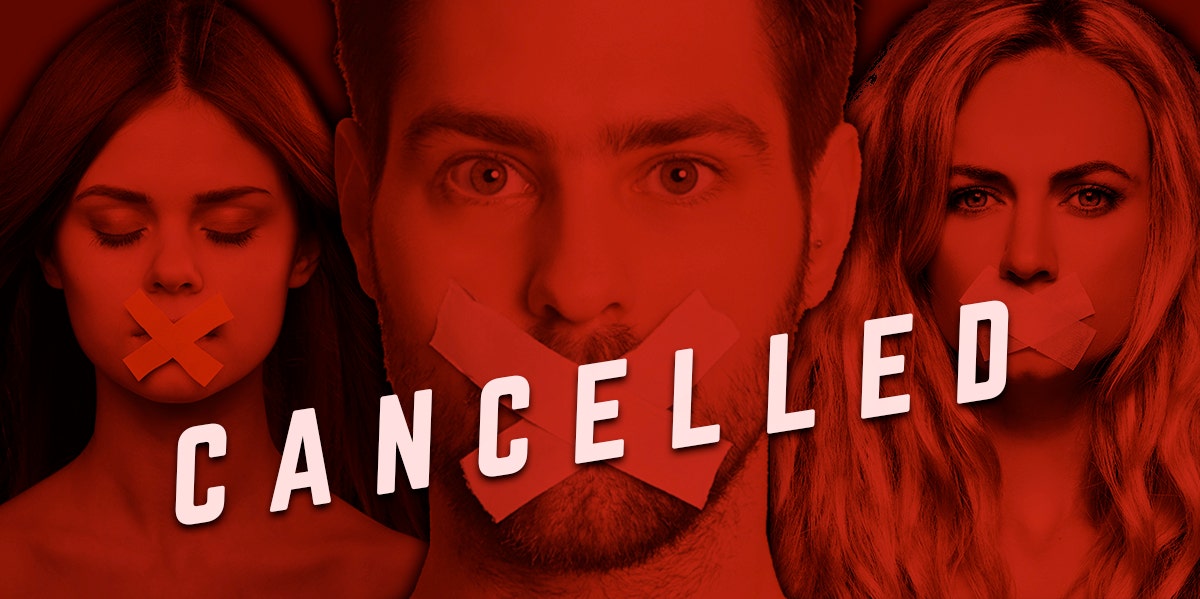Why Cancel Culture Is Rooted In Whiteness
The overall idea of cancel culture is toxic, but it's the only way for POC to have a voice.
 ViChizh, Gladskikh Tatiana, & sirtravelalot / Shutterstock
ViChizh, Gladskikh Tatiana, & sirtravelalot / Shutterstock Time after time we’ve seen cancel culture work almost like clockwork, taking down people in high positions of power.
And also like clockwork, we’ve seen people online voice their disapproval for cancel culture, saying it never allows people to grow if we’re just trying to silence them instead of educating them.
There are countless videos and instances of people getting cancelled, especially in today’s social climate.
From “Soho Karen” to Amy Cooper, both being white women who’ve spewed out racially-charged comments against Black men.
In those cases, cancel culture seems to be the only effective means to allow consequences to happen.
Amy Cooper was fired from her job after threatening to call the police on a Black man in Central Park who simply asked her to keep her dog on a leash. Because of that incident, Governor Cuomo enacted a bill banning false race-based 911 calls because of Cooper.
“Soho Karen,” whose real name is Miya Ponsetto is facing legal charges after falsely accusing a Black teenager of stealing her cellphone.
So yes, calling out and “cancelling” does seem to work in certain situations.
But, this act of calling out people in a very public manner, usually for doing something harmful, isn’t a new tactic.
It’s something that’s been happening for many years, and very akin to the ideas of boycotting — proving the idea of cancel culture has been around for a long time.
Boycotts were a rather popular and successful means for Black people to have their voices heard during the Civil Rights Movement.
And we still see forms of boycotting today, in the #MeToo movement, and Black Lives Matter.
Because we’re living in a very digital age, cancel culture has moved online, allowing people from all over to participate and enact a more swift takedown.
It’s one of the many reasons people have claimed the effects of cancel culture have gone too far.
Even former President Barack Obama weighed in, telling people to get past this idea of always being “politically woke” and to remember that people have flaws.
Cancel culture has also been criticized for its lack of perceived effectiveness.
Even though celebrities are called out for being racist, ableist, sexist, usually the call-out rarely sets back their careers or lessens their popularity.
Kanye West, Doja Cat, and many more have reaped the onslaught of cancel culture, but haven’t seen any declines in their actual careers.
But personally, I agree with the notion of cancel culture being toxic, and not allowing people to grow, but cancel culture is also rooted in whiteness.
People of color have found that cancel culture has been the only way for their voices to be heard. From calling out racial discrimination in the workplace, minorities have been faced with possible unemployement, breaking NDAs, and carrying the stress of simply having these difficult conversations.
Yes, not all cancel culture is good, but the practice itself is sometimes the only way the marginalized community can ensure that their voices won't get lost in a system that was designed to silence them in the first place.
Usually cancel culture creates consequences for people with incredible privilege and power when they wouldn't have received it otherwise. Not only do we need to continue to hear and allow marginalized voices to speak up about racially-charged instances that take place against them, but we also need to set better examples for how to actively dismantle white supremacy.
To me, it seems as if white people are never truly “cancelled.”
They will always have their whiteness, their privilege backing them up.
For Black and Brown people, it seems as if society is always waiting in the shadows for an excuse to alienate us. For “justified reasons” to isolate and continue to use the system against us.
It’s a proven fact that the justice system is more favorable to white people then Black and Brown people, and that sentencing and consequences seem to hit us harder then our white counterparts.
Cancel culture never truly impacts the people that it was intended to impact. Instead, it’s a pick-and-choose kind of game, and in the end, minorities seem to always reap the bad end of the stick.
Nia Tipton is a writer living in Chicago. She covers pop culture, social justice issues, and trending topics. Follow her on Instagram.
